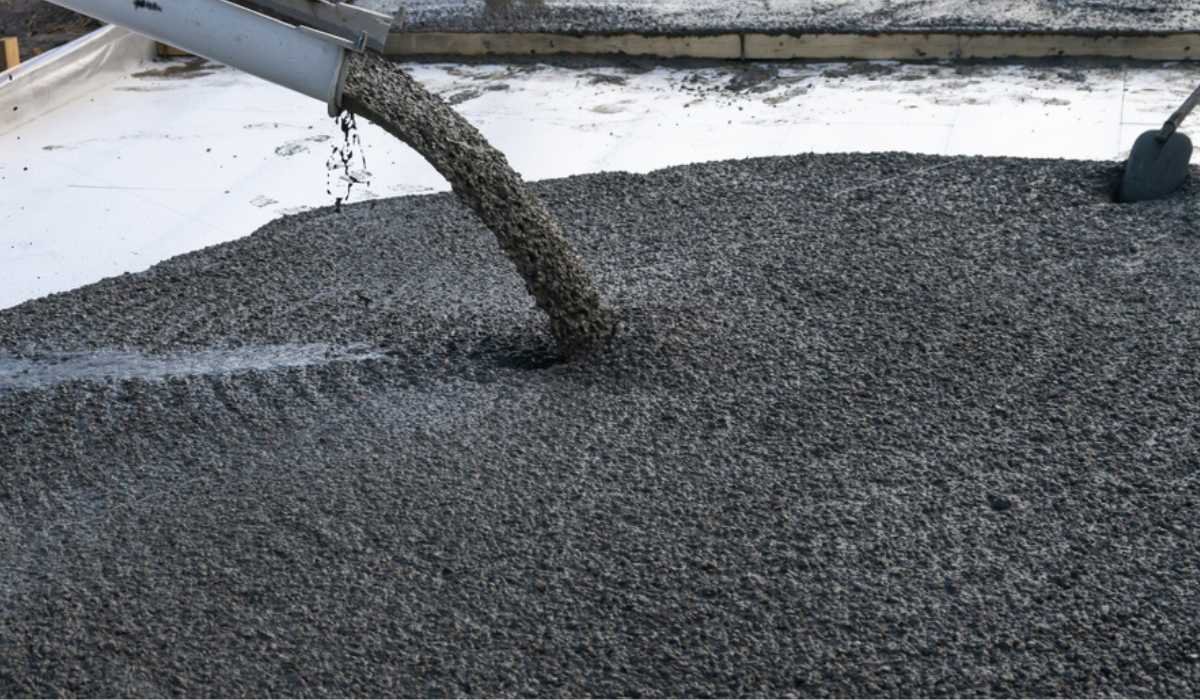Why Pick Our Concrete Providers: Quality in Every Pour
Unveiling the Eco-Friendly Advantages of Using Recycled Concrete in Lasting Building Practices
In the world of sustainable construction practices, the usage of recycled concrete stands as an essential yet typically undervalued resource. Beyond its standard applications, recycled concrete deals a myriad of eco-friendly benefits that extend much past the boundaries of traditional building products. From decreasing ecological influence to improving cost-efficiency, the effects of integrating recycled concrete in sustainable building practices are substantial. This functional product not just addresses pushing environmental worries yet additionally presents a practical service to the difficulties dealt with by the construction industry at big.
Environmental Advantages
Undoubtedly, one of the most considerable advantages of utilizing recycled concrete is its favorable influence on the environment. By integrating recycled concrete right into building and construction techniques, there is a substantial reduction in the requirement for brand-new raw materials, leading to preservation of natural deposits. This procedure assists in protecting aggregates, water, and power that would certainly have been utilized in generating brand-new concrete. Additionally, the use of recycled concrete lessens the quantity of waste being sent out to land fills, consequently reducing ecological pollution and relieving the pressure on land fill capabilities.

Furthermore, the production of typical concrete is a substantial resource of carbon emissions due to the energy-intensive procedure of concrete manufacturing. On the other hand, recycled concrete has a reduced carbon impact as it minimizes the demand for new concrete manufacturing. This decline in carbon discharges adds to mitigating environment adjustment and sustains sustainable construction techniques. In general, the environmental advantages of utilizing recycled concrete are substantial and play an essential duty in advertising environment-friendly construction methods.
Cost-Efficiency
Attaining cost-efficiency is a vital consideration when assessing the use of recycled concrete in building and construction projects. One of the crucial benefits of utilizing recycled concrete is its cost-effectiveness compared to traditional concrete.
Furthermore, the usage of recycled concrete can result in cost savings in land fill prices by drawing away concrete waste from disposal websites. This not only reduces the ecological influence but also eliminates the costs related to waste removal. The toughness and efficiency of recycled concrete are similar to traditional concrete, making sure that price financial savings do not endanger the top quality of the building and construction.
Longevity and Toughness
Considering the significant cost-efficiency advantages of making use of recycled concrete, it is vital to analyze its longevity and strength in building and construction applications. Recycled concrete deals comparable, if not premium, sturdiness and strength properties to typical concrete. With developments in handling methods and quality control, recycled concrete can fulfill or surpass the performance criteria of traditional concrete. The procedure of recycling concrete involves squashing, sorting, and evaluating old concrete to produce accumulations that can be utilized in brand-new building projects. These recycled accumulations are capable of giving adequate compressive strength, longevity, and long-lasting efficiency.

Waste Reduction
Effective waste reduction methods play an important duty in the sustainable use of sources within the building market. Waste reduction is a crucial advantage that contributes substantially to ecological preservation when it comes to utilizing recycled concrete. Traditional building and construction techniques typically produce significant quantities of waste, specifically in the kind of concrete debris from demolition websites. By including recycled concrete right into building and construction tasks, this waste is repurposed and drawn away from land fills, lowering the total ecological influence of building tasks.
Recycled concrete not just aids in lessening the amount of waste that ends up in land fills yet additionally preserves all-natural resources by decreasing the demand for brand-new accumulated materials. This process of waste decrease advertises a round economic situation within the building industry, where materials are recycled and reused to produce a more lasting sector. Furthermore, making use of recycled concrete can lead to set you back financial savings for building projects, as it is often extra cost effective than sourcing and moving brand-new materials. Finally, waste decrease with the utilization of recycled concrete is an important component of sustainable building and construction practices that profits both the construction and the environment market in click here for more info its entirety.
Power Conservation
Power conservation visit here is a critical aspect of sustainable building and construction methods, aiming to reduce the overall power intake linked with building operations and products production. When it comes to making use of recycled concrete in construction, significant energy financial savings are attained contrasted to standard concrete manufacturing. The procedure of creating recycled concrete involves recycling and squashing existing concrete products, which consumes less power than mining, handling, and carrying basic materials for new concrete manufacturing. Additionally, making use of recycled concrete can aid lower the need for virgin accumulation, additional minimizing the energy-intensive removal and handling of natural deposits.
Conclusion
Finally, the application of recycled concrete in lasting building and construction methods provides many environmental benefits, cost-efficiency, durability, strength, waste reduction, and power preservation. By including recycled concrete into building and construction jobs, we can add to a much more eco-friendly and sustainable future. It is necessary for the construction industry to focus on using recycled materials to help in reducing the environmental impact of building tasks.
One of the essential advantages of making use of recycled concrete is its cost-effectiveness contrasted to typical concrete.In addition, the use of recycled concrete can lead to savings in landfill prices by diverting concrete waste from disposal websites. The longevity and performance of recycled concrete are comparable to standard concrete, ensuring that price financial savings do not jeopardize the quality of the building.
